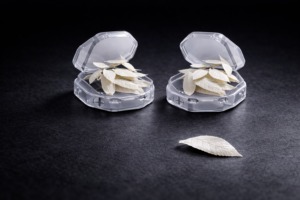Peyronie’s disease is a condition that affects many men, causing curvature, pain, and potential difficulty with sexual function. While it is not life-threatening, it can have a significant impact on confidence, self-esteem, and intimate relationships. Fortunately, men seeking Peyronie’s disease treatment London can access a range of effective options through specialised men’s health clinics.
Understanding how men’s health clinics in London approach Peyronie’s treatment can help men explore the best solutions for their condition and regain their quality of life.
What Is Peyronie’s Disease?
Peyronie’s disease is caused by fibrous scar tissue (plaques) forming inside the penis, leading to abnormal curvature during an erection. The severity of the curve varies and may cause:
- Pain during erections
- Difficulty with penetration
- Shortening of the penis
- Erectile dysfunction (ED)
- Psychological distress
The condition often develops gradually, and while some cases improve on their own, many require medical intervention to prevent worsening symptoms.
How Men’s Health Clinics Diagnose Peyronie’s Disease
When visiting a men’s health clinic in London, patients undergo a comprehensive assessment to determine the best treatment plan.
Medical History and Physical Examination
A specialist will ask about symptoms, pain levels, and how the condition affects sexual function. A physical examination may reveal plaques or hard lumps along the shaft of the penis.
Penile Ultrasound
An ultrasound scan is commonly used to assess the severity of scar tissue, blood flow, and any underlying erectile dysfunction. This helps determine whether non-surgical or surgical treatment is the best approach.
Assessment of Psychological Impact
Many men experience stress, anxiety, or depression due to Peyronie’s disease. Some men’s health clinics in London provide counselling or refer patients to specialists for psychological support.
Treatment Options for Peyronie’s Disease in London
Men’s health clinics offer various treatments depending on the severity of the condition.
Non-Surgical Peyronie’s Disease Treatments
For mild to moderate cases, non-invasive treatments may help reduce curvature and improve symptoms.
Oral Medications
Some men respond to oral medications, although they are not always effective for reducing plaques. These may include:
- Pentoxifylline – Helps improve blood flow and reduce plaque formation.
- Vitamin E and Coenzyme Q10 – May have a mild effect in early-stage Peyronie’s.
Penile Traction Therapy (PTT)
Penile traction devices gently stretch the penis over time to reduce curvature and prevent shortening. This method requires patience but has shown positive results in some cases.
Shockwave Therapy
Low-intensity shockwave therapy is a non-invasive treatment used in some London men’s health clinics to:
- Break down scar tissue
- Improve blood flow
- Enhance healing and reduce pain
While more research is needed, shockwave therapy has shown promise for Peyronie’s disease.
Intralesional Injections (Xiaflex and Verapamil)
Certain medications can be injected directly into the Peyronie’s plaque to break down scar tissue and improve curvature.
- Collagenase Clostridium Histolyticum (Xiaflex) – FDA-approved to reduce plaque in Peyronie’s disease.
- Verapamil or Interferon injections – Alternative injection treatments used in some cases.
These injections are administered over several sessions and are often combined with traction therapy for better results.
Surgical Treatments for Severe Peyronie’s Disease
For men with severe curvature or difficulty with sexual function, surgery may be the best option.
Plication Surgery
A surgeon places sutures on the opposite side of the curve to straighten the penis. This procedure is effective for less severe cases but may cause some penile shortening.
Grafting Surgery
For men with severe curvature, the scarred plaque is removed, and a graft is inserted to restore shape. This method preserves length but has a higher risk of erectile dysfunction.
Penile Implants
For men with both Peyronie’s disease and erectile dysfunction, a penile implant can restore function and straighten the penis. This is often a last resort for severe cases.
Lifestyle and Psychological Support
Men’s health clinics in London often provide comprehensive care, including:
- Lifestyle advice – Maintaining a healthy diet, regular exercise, and avoiding smoking can improve overall vascular health.
- Sexual therapy – Counselling and therapy help men cope with the emotional effects of Peyronie’s.
- Partner support programs – Some clinics involve partners in discussions to address intimacy concerns.
Choosing a Men’s Health Clinic in London
Selecting a reputable men’s health clinic in London ensures access to specialist treatments and experienced professionals. When choosing a clinic, consider:
- Expertise in Peyronie’s disease treatment
- Availability of non-surgical and surgical options
- Access to advanced therapies like Xiaflex injections and shockwave therapy
- Psychological and lifestyle support services
Conclusion
Peyronie’s disease can be challenging, but effective treatments are available at men’s health clinics in London. Whether through medications, injections, traction therapy, or surgery, men can find solutions to improve their condition and restore confidence.
For those experiencing symptoms, seeking early medical advice is key to preventing complications and achieving the best outcomes. By exploring treatment options and lifestyle changes, men can take control of their sexual health and well-being. This proactive approach not only addresses physical symptoms but also significantly enhances psychological well-being. Ultimately, personalised care and expert guidance are crucial for navigating Peyronie’s disease and reclaiming a fulfilling life.




